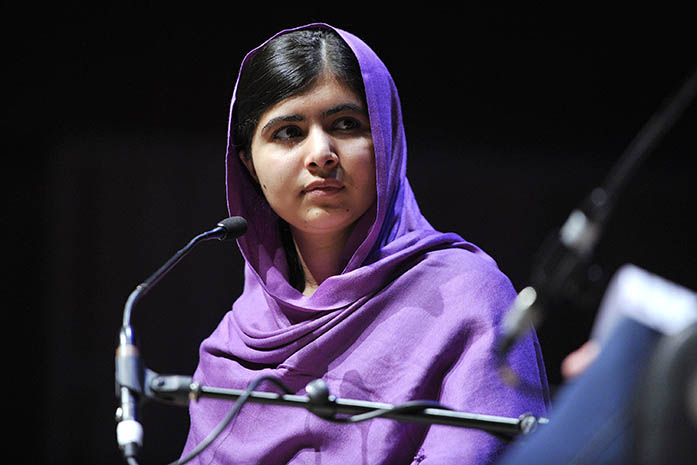Hannah Soyer
Nobel Peace Prize winner and education champion Malala Yousafzai met Emma Watson for a Q&A at the Into Film Festival’s première of the documentary He Named Me Malala. When Malala was 11 and 12, she wrote a blog for the BBC under a pseudonym about her life as a young woman under Taliban rule. This led to the New York Times making a documentary about her in 2010, revealing her identity. When Malala was 15, she was shot by the Taliban while getting off of a school bus and has since worked to make education more available for all children, specifically women and young girls.
With the release of the new documentary, He Named Me Malala, awareness of her journey and the causes she is championing continues to grow. Malala pointed out in the Q&A with Watson that many people seem to think that her winning the Nobel Peace Prize, writing a book, and having a documentary made about her is the end. However, it is important to remember that while all of these efforts have spread awareness of Malala’s journey, they are not the end goal. “People fail to understand that my goal, which is to see every child go to school, hasn’t been achieved yet,” she said.
The fact is that approximately 66 million girls currently are unable to attend school because of the state of education in their country. For Malala and Watson, who is a U.N. Ambassador and founder of the HeForShe campaign, this is also an issue of gender equality, as it should be. Malala posed this powerful question in the interview, one she has asked the public before: “If you are stopping half of the population from coming forward, how can you think of progress?”
The true value of education is often lost on those of us who haven’t had our lives threatened and nearly ended because we went to school. Recognizing this is an important first step. However, we, the privileged in America, cannot simply stop at feeling grateful for the things that we have. Malala has set up an organization called the Malala Fund, the goal of which is to make sure that all children receive quality education. But as Malala pointed out, whether or not they end up building 10 schools or 15 schools depends on the contributions they receive.
Of course, it goes beyond just monetary donations. Even in America, where education is much more readily available than in Malala’s native Pakistan, the amount of federal spending that goes towards education is embarrassingly low. In order to make quality education available for everyone, a huge shift in the national conscious of many countries needs to occur, and the public can help with this too. “We give taxes, and we expect things from our government,” Malala said. “Now it’s time to stand up and look where the money goes. Does it go to education? If not, why not?” Are you going to just sit by and be passive citizens? If you are, that’s fine, but then your right to complain about anything is completely revoked. As Malala also said in the Q&A, “We all have to walk together. That’s how change will come.”
Last, if you need a lesson in feminism, take it from Malala and Watson, who both believe that people have forgotten the true definition of this highly charged f-word. “I am a feminist,” Malala said, “and you all should be feminists, because feminism is another word for equality.”










